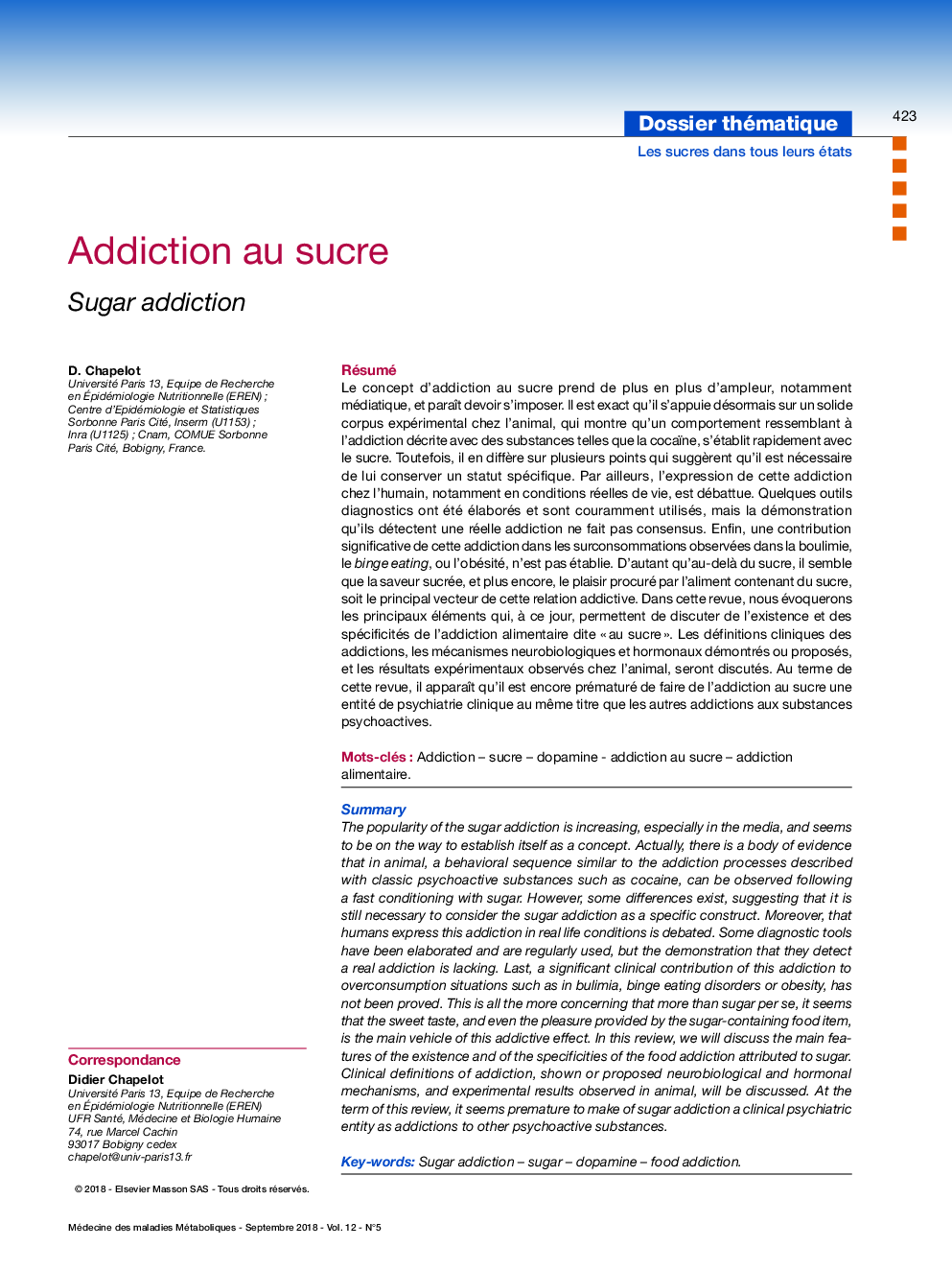| Article ID | Journal | Published Year | Pages | File Type |
|---|---|---|---|---|
| 10217791 | Médecine des Maladies Métaboliques | 2018 | 9 Pages |
Abstract
The popularity of the sugar addiction is increasing, especially in the media, and seems to be on the way to establish itself as a concept. Actually, there is a body of evidence that in animal, a behavioral sequence similar to the addiction processes described with classic psychoactive substances such as cocaine, can be observed following a fast conditioning with sugar. However, some differences exist, suggesting that it is still necessary to consider the sugar addiction as a specific construct. Moreover, that humans express this addiction in real life conditions is debated. Some diagnostic tools have been elaborated and are regularly used, but the demonstration that they detect a real addiction is lacking. Last, a significant clinical contribution of this addiction to overconsumption situations such as in bulimia, binge eating disorders or obesity, has not been proved. This is all the more concerning that more than sugar per se, it seems that the sweet taste, and even the pleasure provided by the sugar-containing food item, is the main vehicle of this addictive effect. In this review, we will discuss the main features of the existence and of the specificities of the food addiction attributed to sugar. Clinical definitions of addiction, shown or proposed neurobiological and hormonal mechanisms, and experimental results observed in animal, will be discussed. At the term of this review, it seems premature to make of sugar addiction a clinical psychiatric entity as addictions to other psychoactive substances.
Related Topics
Health Sciences
Medicine and Dentistry
Endocrinology, Diabetes and Metabolism
Authors
D. Chapelot,
